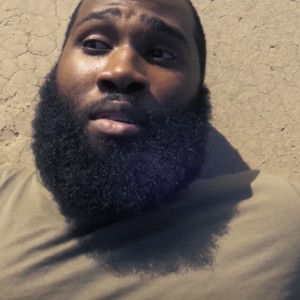
RAPstation Exclusive Interview Pt. II: Chase Allen
By Rapstation Editor for Rapstation.com
Up and coming rapper Chase Allen is making his way from relative obscurity to the forefront of the Hip Hop community. The Los Angeles-based artist has just released to stunning visuals for “Nothing To Lose,” which chronicles his tumultuous journey from growing up in poverty in his hometown of Philly to his emerging success. In Part II of the Chase Allen interview, he addresses the topics of technology, the power music can have, what’s on the horizon, and honest lyricism.
RAPstation (Kyle Eustice): We are flooded with new artists every day in this tech-heavy era. Does the internet make it harder to get recognized or easier?
Chase Allen: I think the internet makes it a lot harder because everybody can put out music now. Anybody can go online drop a single and call themselves an artist. Therefore, it makes other people who are not so internet savvy or have just a few hundred followers, with raw talent, look amateur. Everyone has booking info or management and it discredits people who have been grinding and working hard. It makes artistry look foolish. Now labels want you to have a following in order to even consider your music. Little do they know, you don't even need a label if you already have the following. It’s crazy. It’s not even about the music anymore. It’s about how they can monetize your situation. It’s almost as if you have to become a gimmick and do things that are morally incorrect to get on. It’s challenging for sure.
What’s next for you?
More music. That’s my only focus right now—staying consistent and finally giving it my all. The plan is to get the attention of a label for sure because I could use the backing. A deal with Dreamville, Mass Appeal or something like that wouldn’t hurt. I definitely would like to sign to somebody who is an artist and has that experience because I could use the tutelage. I’m at the point where I found my niche and I just need to keep building on it.
What does the music you make mean to you on a personal level?
My music to me is as powerful as a Malcolm X speech. I’m saying something with strong meaning. I like to read a lot and I like to express myself. I never want to seem like the angry black man who is mad at the world, but quite frankly I am. I want people to feel how I feel when I write. I feel like I been lied to my whole entire life and I want answers. I’m so fed up with the system. I’m tired of being oppressed and it’s time for us to be found. I often think about why we are targeted so much. What is so special about us [the black community] that they have to keep their foot on our necks? Then I realize we are Africans and I see the great history we had, and the potential greatness we can achieve if we all decide we finally had enough. That’s my music. That’s what I want the music to mean to other people besides myself. I hope to help steer people in the right direction.
You clearly put a lot of thought into your lyrics. Do you think lyricism has taken a backseat in most mainstream hip-hop today?
I think lyricism is relative. If you go to Atlanta, most would argue Andre 3000 is the best to ever do it. In Brooklyn, some would say Jay-z or Biggie. Since moving to Los Angeles, I’m hearing Ice cube, Kurupt or Snoop Dogg. I can’t say it has taken a backseat because we have lyrical artists that are mainstream today still. If anything, lyrics and wordplay are at an all-time high, so much so you can barely understand what people are saying because everyone has flow and cadence [laughs]. I can say the emotion and reality of records has taken a backseat though. Everyone is partying, having sex, wearing jewelry, and doing it all again the next day. That’s not real life.